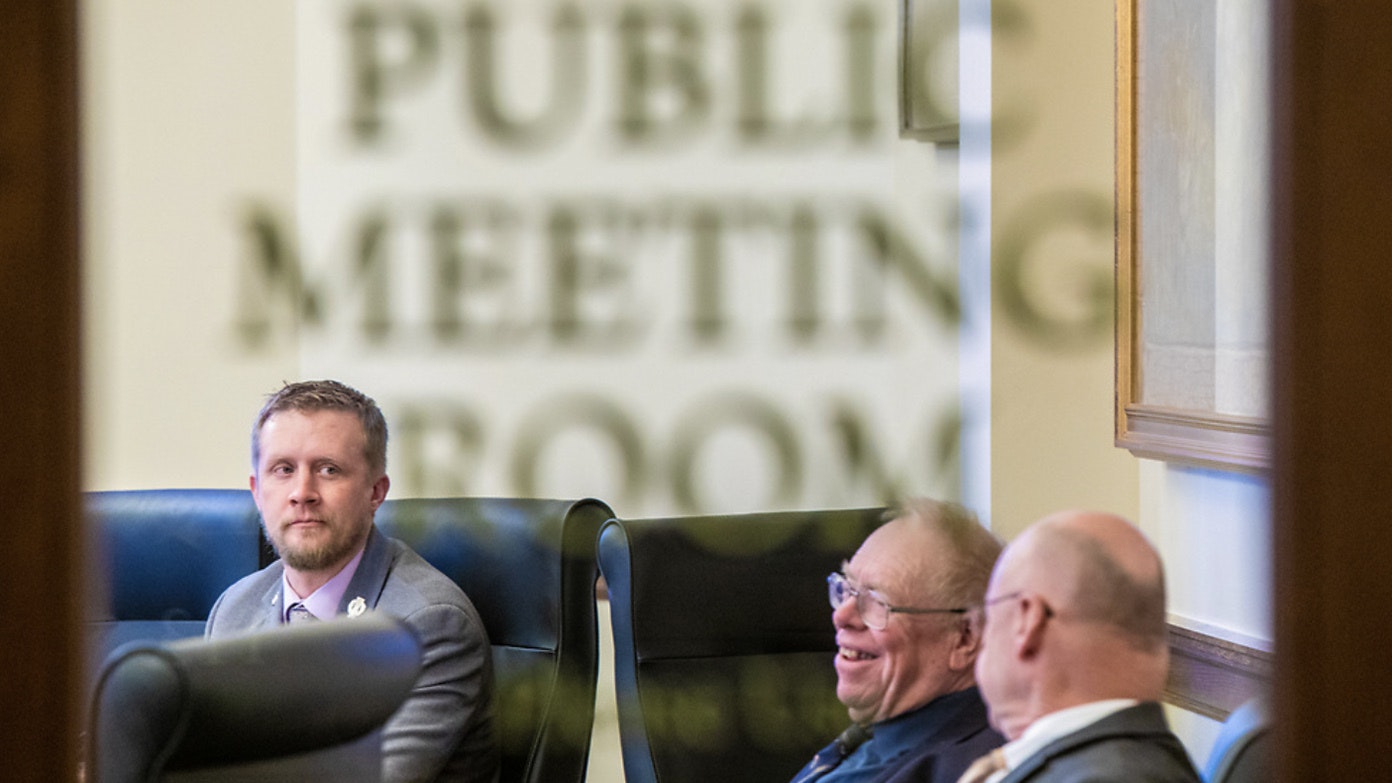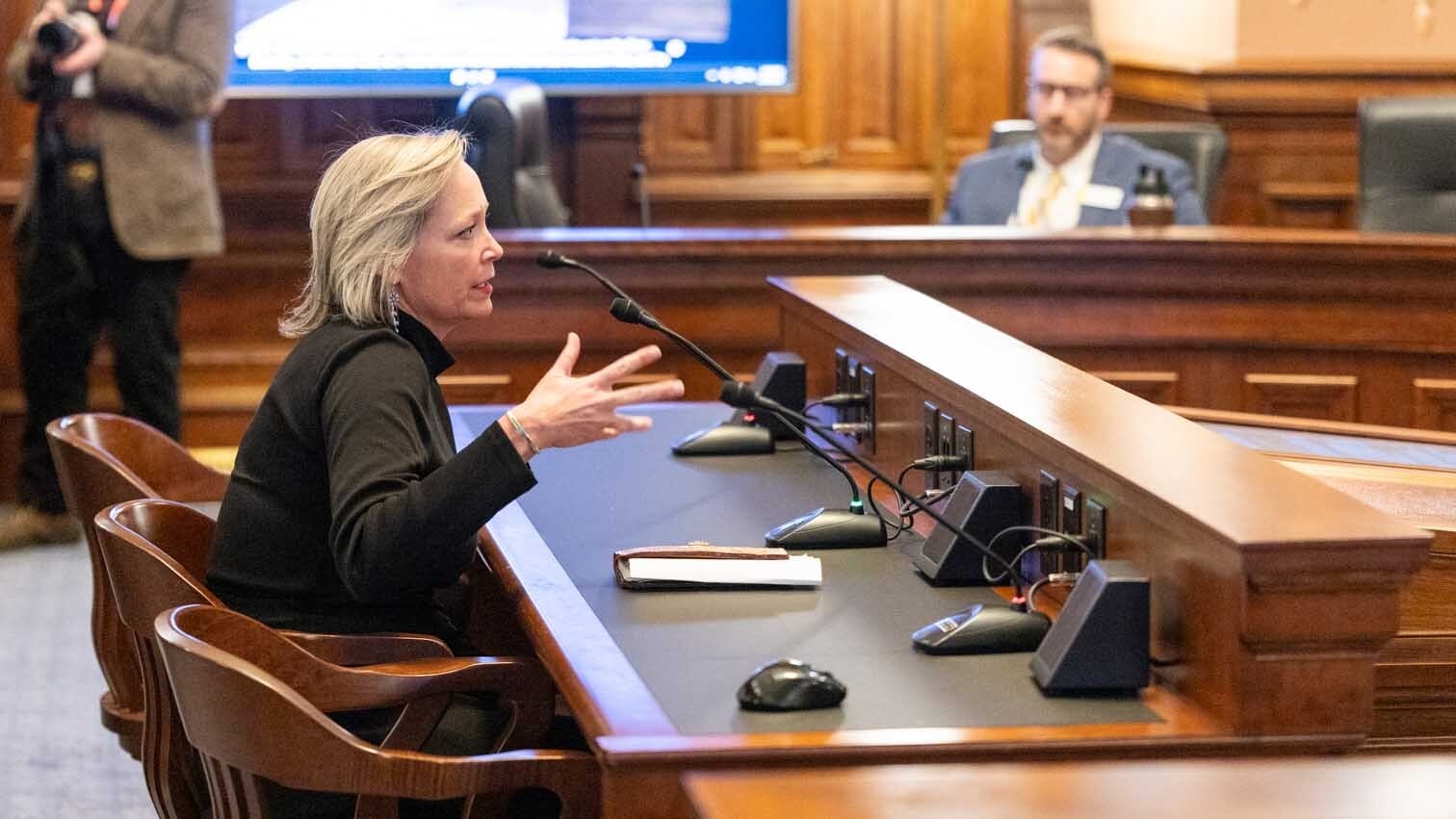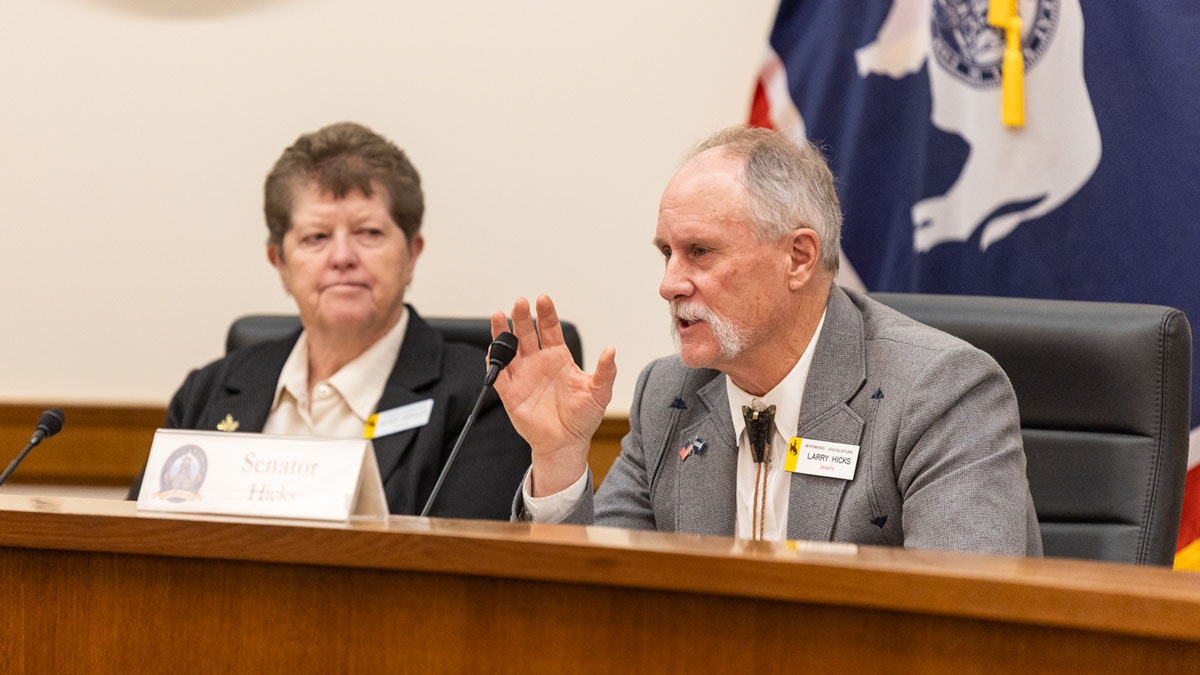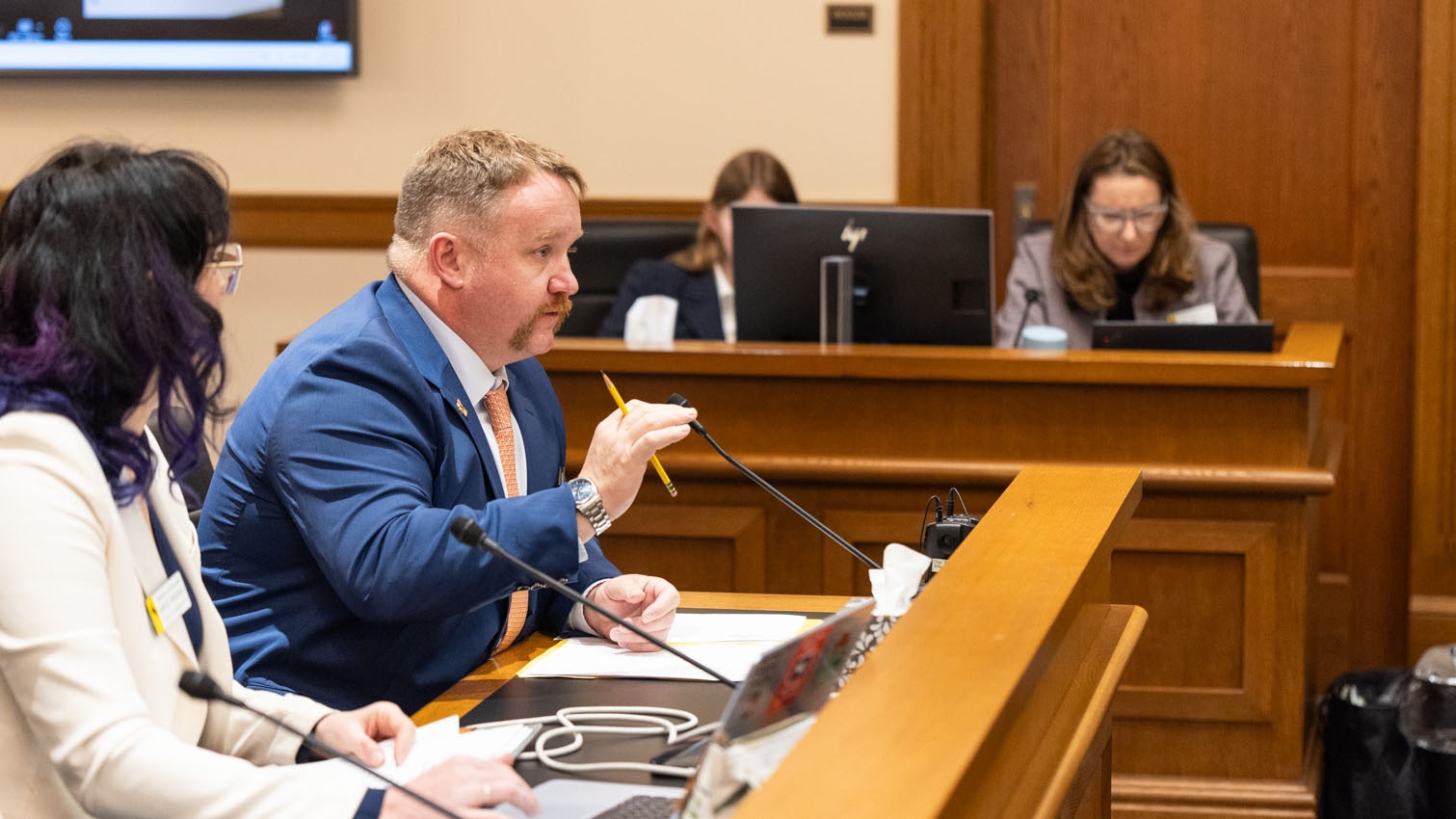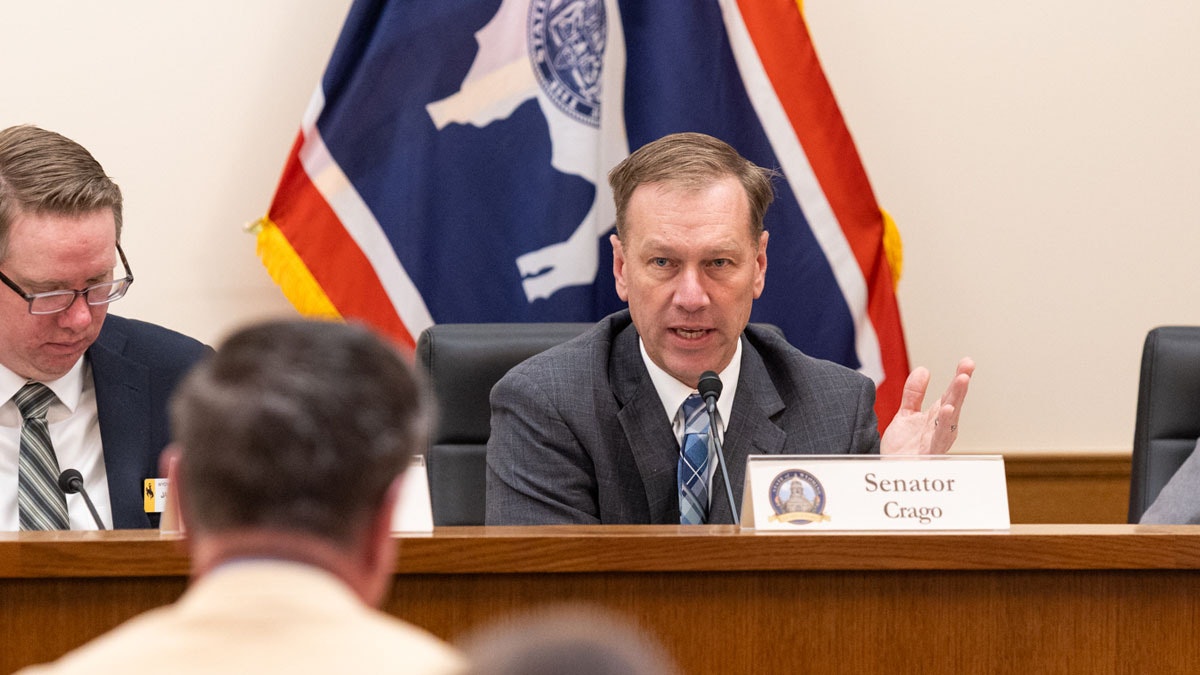The Wyoming Legislature is considering initiating a new form of elections in the state.
On Thursday morning, the Joint Corporations, Elections and Political Subdivisions Committee approved drafting separating bills that would establish open or “jungle” primary elections and a pilot program for ranked choice voting elections in Wyoming.
Open primary elections would involve the top-four candidates moving forward from the primary election to the general. Ranked choice would be tested in nonpartisan, municipal elections in Wyoming, modeling a program currently being used in Utah.
An open primary removes individual party primaries with all political candidates from every party on the same ballot. The top vote-getters move on to the general election.
The major inspiration behind these bills is a desire expressed by many for Wyoming to improve its primary elections.
“I continue to hear the drumbeat, the cry, to do something with our primary elections,” State Rep. Dan Zwonitzer, R-Cheyenne, said.
In the recent primary election, 94% of voters registered as Republicans despite nearly 25% of the state’s voters voting for Democratic candidates in the 2020 elections.
Open Primaries
Jeremy Gruber, senior vice president at Open Primaries, an open primary advocacy group, said during the Corporations meeting that at least ⅓ of states are studying how to improve their primary elections.
“Non-partisan primaries encompass the basic conservative principles of fairness in general elections,” he said.
Gruber said the current primaries are an example of taxation without representation, as he feels the populace as a whole is not being represented by the elections their tax dollars go to support.
He said non-partisan primaries are used in 90% of municipal elections in the United States. Gruber added local-level bodies like city councils typically have the highest voter approval among all U.S. political systems.
Jennifer Lowe, executive director of the Equality State Policy Center, said during the meeting, when considering 94% of voters cast a ballot as Republicans in last week’s primary election, Wyoming already has a quasi open primary.
She said the Legislature could consider an open primary with the top four candidates advancing to the general election. Lowe said this would allow for third-party candidates having a better chance of competing in a general election.
Sen. Charles Scott, R-Casper, expressed concerns with open primaries in that they can shut off third party candidates from the general election. He said this problem could be remedied if political parties are allowed to fill vacancies in the general election if they were not able to field a candidate by the primary election.
There are only two contested statewide general elections in Wyoming this year, a problem Scott believes could be alleviated by initiating his idea.
The committee decided that Wyoming’s open primary, if initiated, would emulate the open primary currently used in Alaska.
Alaska and Maine are the only states that use ranked choice voting in their statewide elections. In Alaska, the top four candidates from the open primary elections advance to the general election where ranked choice voting takes place.
Corey Steinmetz, a Wyoming Republican Party national committeeman, said during the meeting that Republicans want to continue the status quo and spoke against open primaries.
“We would have competitive elections if Democrats would run,” he said. “I don’t know that we need to reinvent the wheel.”
Bryan Miller, chair of the Sheridan County Republican Party, said the state should be willing to pay for runoff elections but does not want ranked choice voting, claiming it involves complicated algorithms.
Gruber cautioned against more limited open primaries. He pointed to what he says are abuses in Florida. He said that system is vulnerable to partisan manipulation.
Ranked Choice
Ranked choice voting is an electoral system where voters rank candidates by preference on their ballots. If a candidate wins 50% or more of first-preference votes, he or she is declared the winner. If no candidate wins a majority of first-preference votes, the candidate with the fewest first-preference votes is eliminated. First-preference votes cast for the failed candidate are eliminated, lifting the second-preference choices indicated on those ballots. A new tally is conducted to determine whether any candidate has won a majority of the adjusted votes. The process is repeated until a candidate wins an outright majority.
If a ranked choice vote would have been used in the recent Republican U.S. House primary election, challenger Harriet Hageman still would have been the outright winner.
Jacqueline McMahan, a committeewoman with the Sheridan County Democratic Party, spoke on behalf of ranked choice voting and open primaries, saying they would engage more citizens.
She mentioned how as a child, she and a much more slender friend were able to correctly balance a playground seesaw at the same time, making a comparison to the need for a collective elections process. She also reflected on a trip she made as a Girl Scout to the State Capitol, chaperoned by Dorothy Enzi, mother of the late U.S. Senator Mike Enzi. Dorothy Enzi told the troops that their votes all count.
“For many in our state, Mrs. Enzi’s promise is an empty one,” McMahan said.
McMahan said she has witnessed a disillusionment of voters when it comes to the elections process, citing “intrinsic problems” with the two-party system that she believes fosters hate and disunity.
“I believe we are all more than our party platform,” she said.
She also said unaffiliated voters are disenfranchised when it comes to the current primary elections.
Ken Chestek, a University of Wyoming law professor and chair of Wyoming Promise, also supports ranked choice voting. The Wyoming Democratic Party used this process to elect delegates to the 2020 Democratic Party National Convention. He said ranked choice voting incentivizes candidates to “tone down” and “mitigate” their campaign rhetoric, appealing to a broader base of voters.
Scott believes ranked choice doesn’t work well because he, like Miller, thinks many people don’t understand how it works. He said runoffs don’t work because they are difficult to incorporate overseas U.S. citizens into the voting process for follow up elections.
Utah has been trying out ranked choice voting through a pilot program in their local elections, with 23 cities opting into the program, 20 of which had contested elections.
Lowe and Matthew Germer, an elections fellow for the Governance Program at the R Street Institute, said polling suggests Utah voters support this voting system at the local level and don’t find it confusing.
“I think the narrative that ranked choice voting is confusing is a false one,” Lowe said.
Sen. Cale Case, R-Lander, said a similar test program could be initiated in Wyoming for municipal elections.
Runoffs
In the Legislative session this spring, two bills were crafted that would have addressed the establishment of runoffs in Wyoming.
Runoff elections are slightly different from ranked choice. In runoff elections, another election is held if a first place candidate fails to win the majority of the vote.
To allow runoffs, the Wyoming Constitution would have to be altered, which would require a supporting vote from citizens.
Wyoming resident Matthew Link spoke during the meeting against runoffs, saying they don’t eliminate the two-party system but do eliminate the “spoiler” effect in traditional elections.
“That’s why instant runoffs have failed in eliminating two party dominance in our current state,” he said,
Link did say this system could help elect a different winner than plurality elections, but it’s not as much as some people may think.
Germer said runoff elections encourage third party voters to participate more in elections, a point that Rep. Jim Roscoe, I-Wilson, agreed with. Roscoe is one of two minor party members in the State Legislature.
The other minor party legislator, Rep. Marshall Burt, a Libertarian from Green River, said he does not agree with retaining the current two-party system. He said there needs to be equal representation on the ballot. He proposed initiating multi-member districts, where multiple legislators are representing the same district, which would give political parties the responsibility of running their own primaries.
Brett Moline, director of public and governmental affairs of the Wyoming Farm Bureau Federation, said runoffs might be more expensive up front but are the same cost in the long run. He advocated for runoffs, saying they allow the voters to have their voices more represented.
Roll Out
Kai Schon, state election director, said there is no federally certified system for ranked choice voting. He said there is a third-party tool used to facilitate these elections, but state elections law would have to be revised to allow the removal of federal certification requirements.
“I think we would be remiss to remove ourselves from it,” Schon said.
As the laws are written right now, Wyoming could not do a ranked choice for just a primary or just the general election. Schon said federal certification laws apply to all elections in the state, no matter the office.
He said it would cost $864,000 for the initial implementation of this program. After that, yearly cost increases would run up to $10,000 per county per election into the future.
Schon said a runoff election would be easier to run at this time, but it might be more costly in the long run, with the cost possibly increasing by more than $1 million.
Schon said a ranked choice system would have to be run statewide.
Scott proposed a bill that would allow parties that do not have a candidate coming out of the primary election to select a candidate for the general. Case said during the meeting he finds this idea “innovative,” but says this favors parties that don’t participate in the primary. He said he prefers these organizations to participate at the primary stage.
The committee did not express any great urgency in moving forward with any of the new voting systems, but Sen. Brian Boner, R-Douglas, a more conservative legislator, made the motion to allow for the pilot program for Wyoming’s non-partisan, municipal elections, based on Utah’s program.
Any election system changes would go into effect for the 2024 primary election. The Corporations Committee will have a vastly different look next year as four of its House members were either voted out of office in the primary or are retiring.

